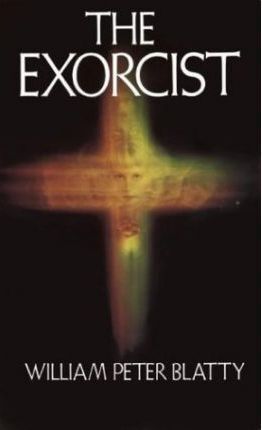The Exorcist by William Peter Blatty - Review

The Exorcist
Why am I only now discovering this author and book? This question kept popping up in my mind as I read, impressed page after page by Blatty's mastery in creating original and realistic descriptions and comparisons (seriously, I reread some of the phrases two or three times); by his ability to paint vivid pictures with words; and by his deep exploration of the characters' psychology – something I particularly love encountering in books. And last but not least, his skill in weaving profound knowledge into the plot, so that at no point do you doubt that it originates from the character rather than from the author's research.
The title sets certain expectations – possession by a demon and an exorcism ritual. I won't reveal anything about the plot, but I will say that until near the end of the book, I was left questioning whether these expectations would be fulfilled. At times, I was convinced that little Regan was possessed by a demon, while at other times I hesitated, swayed by the doubts, uncertainties, and at one point, the wavering of Father Karras. In this sense, for me, this part of the book was like a guide for writers on how to raise questions in the readers' minds, how to sow doubt without misleading or deceiving with tricks. With his captivating writing, revealing deep knowledge, Blatty sustains Karras's dilemma to the very end, combining it with the theme of his faith. Will he regain it or not?
It was also incredibly interesting for me to follow the journey of Regan's mother, specifically her breakdown, as well as that of all the other characters surrounding the little girl. Their collapse, yet at the same time, their refusal to give in.
The book touches on many psychological themes – the trials that disrupt the personality and their consequences, along with the unimaginable side effects. Blatty provides stunning research, along with intriguing facts and examples from history regarding cases of psychological issues, and those whose explanations were sought beyond the realm of psychology after all guesses had been exhausted.
For me, Blatty also raises many existential themes that provoke deep reflection.
I’ll take the liberty of quoting, though not exactly, as I read the book in my native language. There might be some discrepancies in the translation, but I would like to emphasize at least one of these themes:
"Then what is the purpose of the possession? What’s the point?"
"Who knows?," replied Merrin. "Who could hope to know? And yet, I think the demon's goal isn't the victim, but us... the witnesses... everyone in this house. And I think... I think the point is to drive us to despair; to reject the human, Damien; to ultimately see ourselves as beasts, vile and corrupted; without dignity; ugly; unworthy. And maybe that's the key—to see ourselves as unworthy. Because I think that faith in God doesn't depend on reason at all; I think in the end, it all comes down to love—to accept that God will always love us."
Published on September 14, 2024 05:21
•
Tags:
review-blatty-bla, the-exorcist, william-peter
No comments have been added yet.



